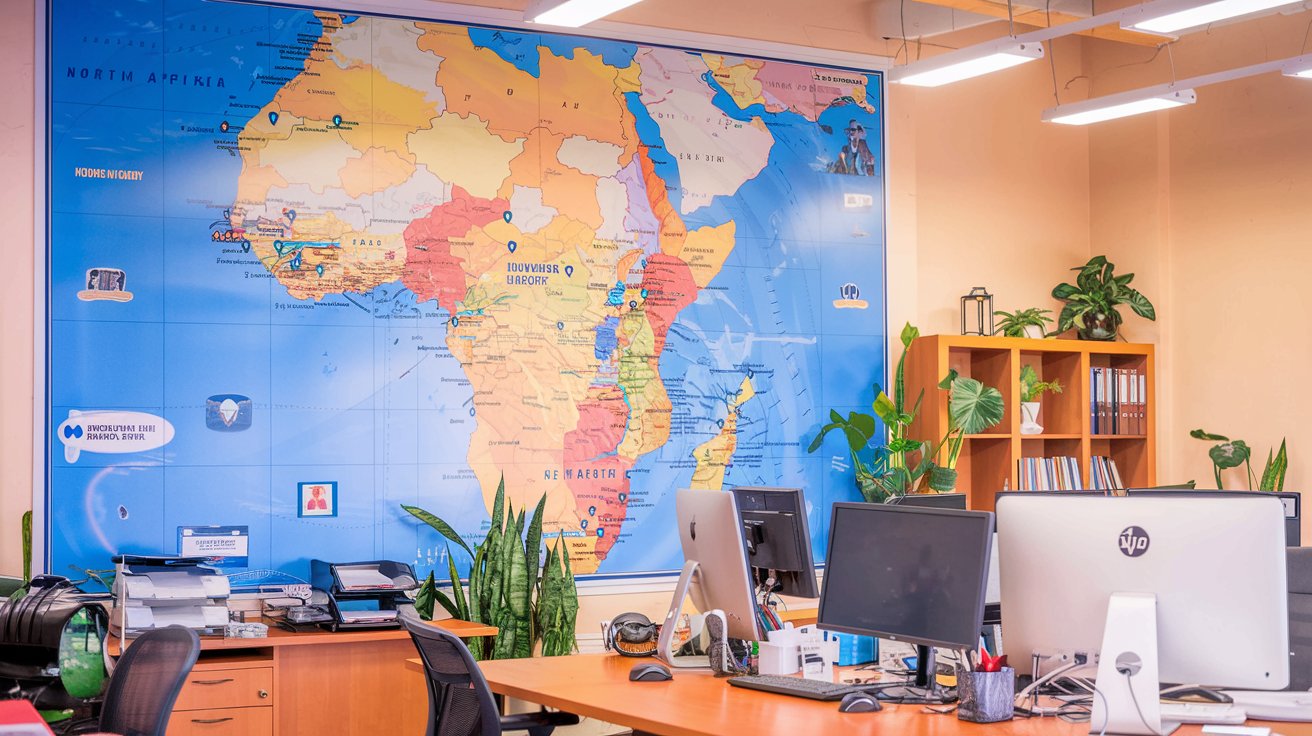No products in the cart.

North Africa, encompassing countries like Egypt, Algeria, Morocco, and Tunisia, is rapidly emerging as a significant market for global businesses. With its strategic location, youthful population, and increasing foreign investment, North Africa offers a landscape rich with economic potential. This article delves into the key market insights of North Africa, highlighting opportunities and challenges for businesses looking to expand in this vibrant region.
Unlock your potential with market research services from Think Positive. Explore our market research services to understand the North African market better.
Understanding North Africa’s Market Landscape
Key Economies in North Africa
The economic landscape of North Africa is shaped by its largest economies, each with unique characteristics.
Egypt
As the most populous country in the region, Egypt serves as a major economic hub. Its economy is buoyed by massive infrastructure projects, such as the Suez Canal expansion and the New Administrative Capital. The burgeoning technology sector and a vibrant tourism industry position Egypt as an attractive destination for investors.
Algeria
Algeria plays a crucial role in the energy sector, thanks to its vast oil and gas reserves. The country is actively diversifying its economy by investing in renewable energy and agriculture, aiming to reduce its dependency on hydrocarbons.
Morocco
Morocco’s open trade policies and focus on renewable energy make it a standout market. Strategically located as a gateway to Europe and sub-Saharan Africa, Morocco attracts foreign investments in automotive, textile, and technology sectors.
Growing Sectors in North Africa
Several industries in North Africa are experiencing rapid growth, creating vast opportunities for local and foreign investors.
Agriculture
Agriculture remains a cornerstone of North Africa’s economy, especially in Egypt and Morocco. With a growing demand for food security and technological advancements in farming, this sector is undergoing a significant transformation.
Energy and Natural Resources
North Africa’s rich natural resources, particularly in Algeria and Libya, continue to drive economic growth. The rise of renewable energy projects, especially in Morocco, reflects a shift towards sustainability.
Technology and Innovation
The digital economy is gaining traction in North Africa, with startups and tech hubs emerging in cities like Cairo, Tunis, and Casablanca. Innovations in fintech and e-commerce are reshaping the business landscape in the region.
Trade and Investment Opportunities
North Africa is ripe with opportunities for international businesses, particularly in trade and infrastructure.
Infrastructure Development
Ongoing infrastructure projects—such as road networks, ports, and airports—are enhancing connectivity and logistics, facilitating the expansion of businesses throughout the region.
Foreign Direct Investment (FDI) Trends
FDI in North Africa is on the rise, driven by government incentives and regional agreements. Countries like Morocco and Egypt are becoming major FDI destinations due to their stable business environments and reforms aimed at simplifying business operations.
Economic Growth Drivers
Government Policies and Reforms
Government-led reforms are creating a more favorable business environment across North Africa. For instance, Egypt has implemented significant economic reforms that attract foreign investors, including a new investment law and subsidy cuts aimed at stabilizing the economy.
Regional Trade Agreements
The African Continental Free Trade Area (AfCFTA) is set to revolutionize North Africa’s trade landscape. By promoting intra-African trade, AfCFTA is expected to boost economic integration and open up new markets for businesses operating in the region.
Benefits of AfCFTA
North African countries stand to benefit significantly from AfCFTA, which removes trade barriers and encourages regional collaboration. This agreement offers businesses a larger consumer base and opportunities for cross-border trade.
Key Challenges and Risks in the North African Market
Political Stability and Governance
Political uncertainty remains a challenge in some North African countries. While Morocco and Egypt enjoy relative stability, nations like Libya face political instability that can deter investors.
Inflation and Currency Volatility
Currency fluctuations, particularly in Egypt and Tunisia, can impact foreign businesses and complicate long-term planning. Inflationary pressures also affect consumer purchasing power, shaping market dynamics.
Social and Economic Inequalities
Despite economic growth, deep social and economic disparities persist across North Africa. Youth unemployment remains a critical issue, prompting governments to implement various economic initiatives.
The Role of Technology in Market Growth
Digital Transformation in North Africa
North Africa is experiencing a digital revolution, characterized by increasing internet penetration and mobile phone usage. Governments and private sectors are investing in digital infrastructure to drive economic growth, including fintech solutions and e-governance platforms.
Startups and Innovation Hubs
Cities like Cairo and Tunis are emerging as vibrant startup hubs, attracting local and international entrepreneurs. These innovation ecosystems are supported by government initiatives and private investments, fostering a thriving startup culture.
Future Trends to Watch
Sustainability and Green Initiatives
As global attention shifts toward sustainability, North Africa is no exception. Morocco leads the way with its renewable energy projects, setting a benchmark for sustainability in the region.
Emerging Markets in the Region
Beyond the major economies, emerging markets like Tunisia are gaining traction for their growing technology sectors and reforms designed to attract foreign investment.
Conclusion
North Africa presents a wealth of opportunities for businesses aiming to expand into new markets. Its strategic location, abundant natural resources, and burgeoning technology sector create a dynamic environment for growth. However, challenges such as political instability and economic disparities require careful navigation. Businesses that stay informed and adapt to the evolving landscape will be well-positioned for success.
For more insights on how market research services can facilitate your business growth in North Africa, visit our market research services page to learn more.
Previous Post
Regional Data Collection in MENA: Unlocking Insights
 Demos
Demos  Docs
Docs  Support
Support 




